Fiction
Fiction
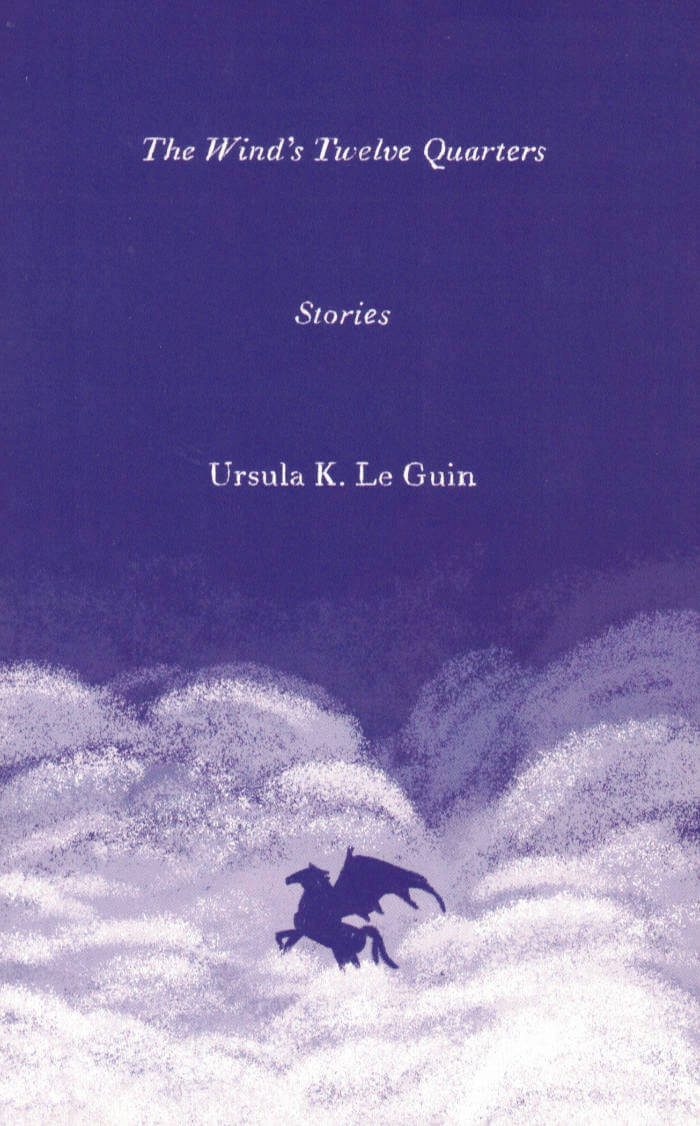
The Wind's Twelve Quarters: Stories
Seventeen short stories reveal the author's sustained concern with human relationships and values in past and future worlds of fantasy, speculation, and unearthly provision.
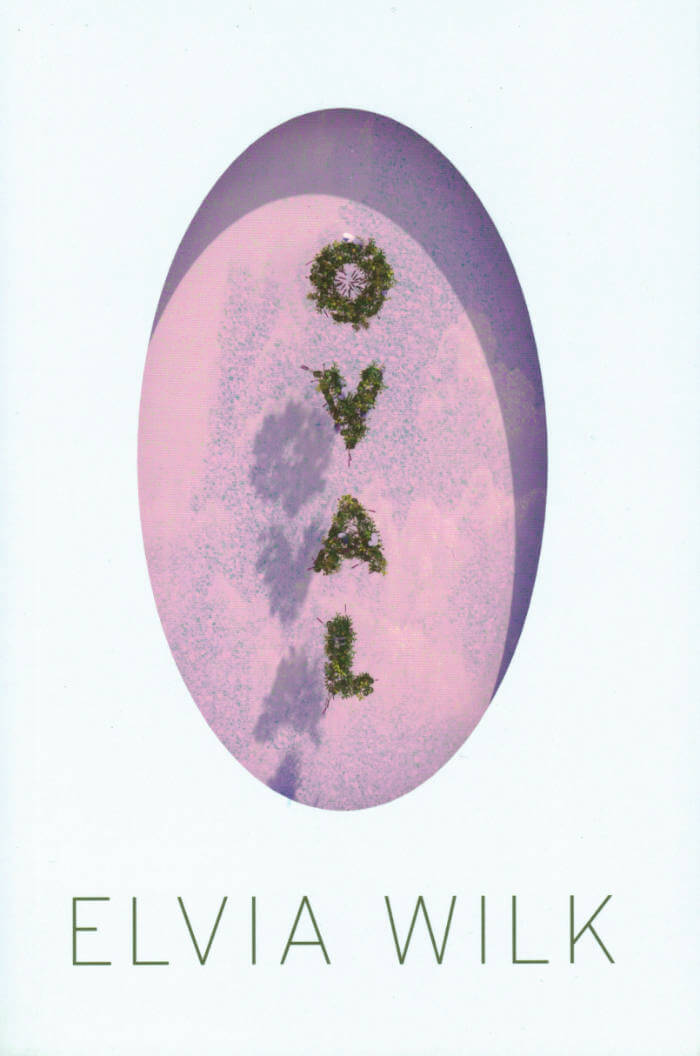
Oval
In the near future, Berlin's real estate is being flipped in the name of "sustainability," only to make the city even more unaffordable; artists are employed by corporations as consultants; and the weather is acting strange. In search of affordable housing, young couple Anja and Louis move into a community on an artificial mountain, The Berg—yet another "eco-friendly" initiative run by a corporation called Finster. They're offered a home rent-free in exchange for keeping quiet about the seriously malfunctioning infrastructure of the experimental house. But when Louis returns home from his mother's funeral in America, Anja is convinced he has changed. He seems to be in denial of his grief and newly idealistic, consumed by a secret project at the NGO where he works as an artist-consultant. Anja is horrified when she discovers what Louis has invented: a pill called Oval that temporarily rewires the user's brain to be more generous. Louis is convinced that if he can introduce the drug into the Berlin club scene, he can finally remedy the income disparity that has made Berlin so unlivable.
Oval is a fascinating portrait of the unbalanced relationships that shape our world, as well as a prescient warning of what the future may hold.
Elvia Wilk is a writer and editor living in New York and Berlin. She writes about art, architecture, and technology for several publications, including frieze, Artforum, e-flux, Metropolis, Mousse, Flash Art, Art in America, and Zeit Online.

Fields
As a stretch of land cultivated for crops to grow, a field evokes sensuous associations of smells, turned soil, exposure to weather. In a sense, fields ground our entire sedentary civilization and the cultures it gave rise to. At the same time, the field is where bodies fall in battle, the site that hosts the perishing of things.
Interweaving strands of autobiography with mythological and cultural tropes, Julien Bruneau explores the field as a metaphor rich with meaning and possibility. How do we inhabit fields and their furrows? How in turn do their history and imagination traverse us? As if it were a dance on the page, Fields invites the reader to encounter, think and feel our entanglement with space and places.
Julien Bruneau is an artist working with dance, presence, drawing and writing. His interest lies in the dynamic interplay between interiority and the collective.

Sinkhole: Three Crimes
A novel in three parts, Sinkhole: Three Crimes submerges readers in a grotesque and comical world on the edge of collapse – much like our own. Britain is immersed in a toxic swamp, and sinkholes are opening up in the ground with alarming frequency. Amid the mayhem, three crimes take place: Stonehenge has been stolen, a porn-addicted ghost writer faces the phantoms of her past, and a murder takes place among ex-pats in a Goan village.
‘An acidly funny vivisection of British mores and follies, delivered with razor wit and style. McLaughlin’s creative imagination is restless, wide-ranging and prescient, unveiling a terrifyingly plausible array of futures.’ – Leon Craig, author of Parallel Hells
‘Sinkhole is a twisted dystopian satire that captures all the maladies of modern England – a sick and perverse nation – in hilarious, pin-sharp definition, as it slides back under the waves.’ – Huw Lemmey, author of Red Tory: My Corbyn Chemsex Hell
Rosanna McLaughlin is an author and cultural critic. Double-Tracking, her debut collection of satirical essays and short fiction on the subject of middle-class duplicities, was published by Carcanet in 2019. An original proposal for the book was shortlisted for the Fitzcarraldo Essay Prize in 2016. Rosanna has written on subjects including Ariana Grande, the legacy of Section 28, and the weaponisation of Ana Mendieta. In 2017, she was writer-in-residence for the British Council Caribbean, researching the political fallout following Mendieta’s death. Her reviews and essays have been published in frieze magazine, ArtReview and the Guardian, among other places. She is co-editor of The White Review.
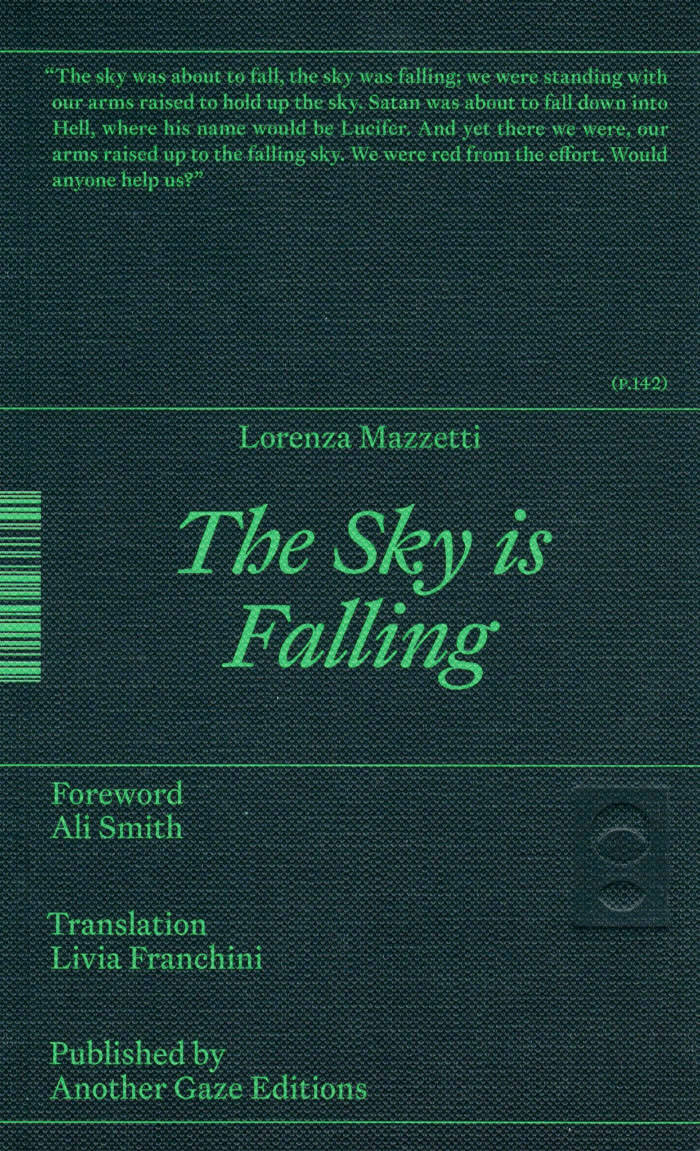
The Sky is Falling
First published in 1961, Lorenza Mazzetti’s “The Sky is Falling” (“Il cielo cade”) is an impressionistic, idiosyncratic, and uniquely funny look at the writer’s childhood after she and her sister are sent to live with their Jewish relatives following the death of their parents. Bright and bucolic, vivid and mournful, and brimming with saints, martyrdom, ideals, wrong-doing and self-imposed torments, the novel describes the loss of innocence and family under the Fascist regime in Italy during World War II through the eyes of Mazzetti’s fictional alter ego, Penny, in sharp, witty (and sometimes petulant) prose.
First translated into English as “The Sky Falls” by Marguerite Waldman in 1962, with several pages missing due to censorship, the novel has been out of print in the anglophone world for many years. We are proud to reissue the text in a beautiful new translation by Livia Franchini that carries over the playfulness and perverse naivete of the original Italian.
“Il cielo cade” is so much more than just a book about the horrors of the Second World War. It is as much a loving homage to the picture-perfect childhood Mazzetti’s aunt and uncle provided for her and her sister before circumstances beyond their control overwhelmed them, and thus also a moving portrait of the cruel loss of childhood innocence” – Lucy Scholes, “The Paris Review”.
LORENZA MAZZETTI (1928 – 2020) drew, made films, wrote novels and towards the end of her life ran a puppet theatre in Rome.
Mazzetti first discovered filmmaking in the U.K.. Upon arriving in London in the late 1940s, Mazzetti was admitted in unconventional style to the Slade (the day before term began and having not enrolled, she went to the director and told him she was a genius) and swapped her sketchbook for celluloid after finding some film equipment in the school’s store cupboard. She was the first woman to receive public funding in the UK for her film “Together” (1956), which was presented as part of the first Free Cinema programme at the National Film Theatre in 1956 alongside films by Lindsay Anderson, Tony Richardson and Karel Reisz.
When Mazzetti returned to Italy in the late 1950s, she gave up filmmaking and turned to writing. Her first novel, “Il cielo cade” (1961) was awarded the prestigious Premio Viareggio prize, and still appears on the Italian school curriculum.
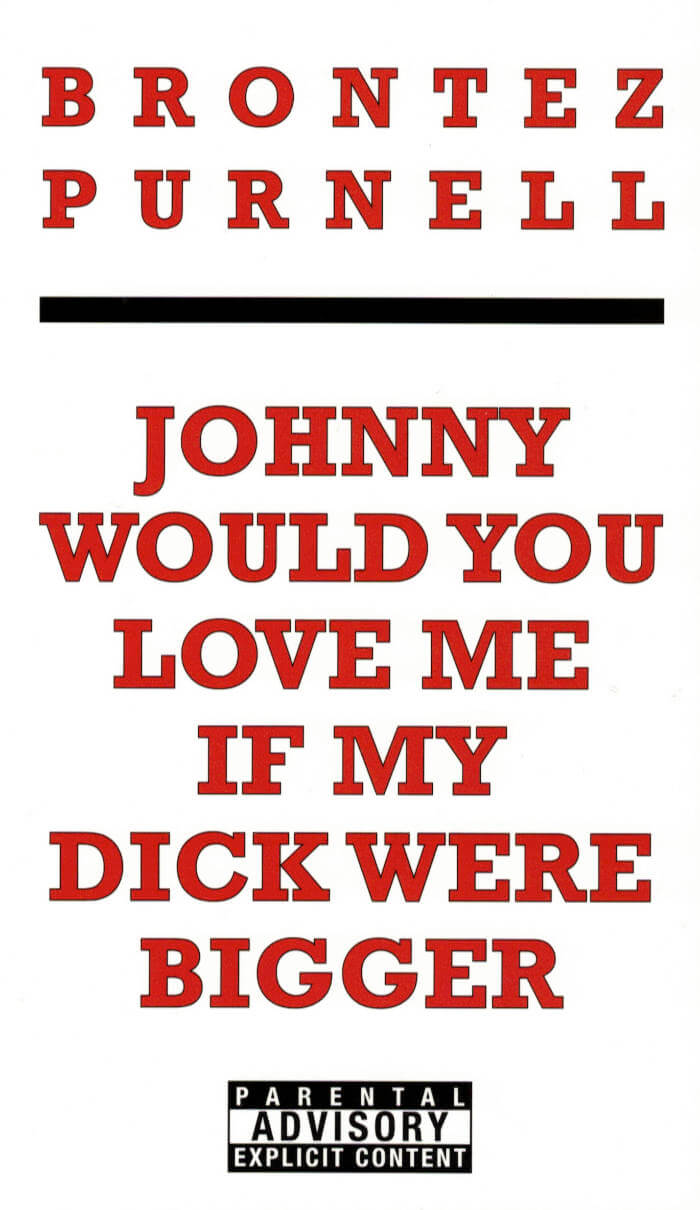
Johnny Would You Love Me If My Dick Were Bigger
A dirty cult-classic put out in a small batch by an underground publisher (Rudos and Rubes) in 2015, Johnny Would You Love Me If My Dick Were Bigger recounts the life of an artist and "old school homosexual" who bears a big resemblance to author Brontez Purnell.
Our hero doesn't trust the new breed of fags taking over San Francisco, though. They wear bicycle helmets, seat belts, and condoms. Meanwhile, he sabotages his relationships, hallucinating affection while cruising in late night parks, bath-houses, and other nooks and crannies of a newly-conservative, ruined city.
Furiously original, vital, and messy, this funny "non-memoir" uncovers a revelatory truth for the age: there are things far scarier than HIV.

Tripticks
First published in 1972, Ann Quin's fourth and final novel was a radical break from the introspective style she had developed in Three and Passages: a declaration of independence from all expectations.
Brashly experimental, ribald, and hilarious, Tripticks maps new territories for the novel—aspiring to a form of pop art via the drawings of the artist Carol Annand and anticipating the genre-busting work of Kathy Acker through collage and gory satire.
Splattering its pages with the story of a man being chased across a nightmarish America by his "first X-wife," and her "schoolboy gigolo," Tripticks was ground zero for the collision of punk energy with high style.

Die, My Love
In a forgotten patch of French countryside, a woman is battling her demons embracing exclusion yet wanting to belong, craving freedom whilst feeling trapped, yearning for family life but at the same time wanting to burn the entire house down. Given surprising leeway by her family for her increasingly erratic behaviour, she nevertheless feels ever more stifled and repressed. Motherhood, womanhood, the banality of love, the terrors of desire, the inexplicable brutality of another person carrying your heart forever Die, My Love faces all this with a raw intensity. It s not a question of if a breaking point will be reached, but rather when and how violent a form will it take?
A manic, bruising stream of conscious portrayal of a mother and wife struggling to maintain both a normal life and her sanity.
Compared to Nathalie Sarraute and Virginia Woolf, Ariana Harwicz is one of the most radical figures in contemporary Argentinian literature. Her prose is characterised by its violence, eroticism, irony and criticism of the clichés surrounding the notions of the family and conventional relationships. Born in Buenos Aires in 1977, Harwicz studied screenwriting and drama in Argentina, and earned a degree in Performing Arts from the University of Paris VII as well as a Master's in comparative literature from the Sorbonne. She has taught screenwriting and written plays, which have been staged in Buenos Aires. Feebleminded (which has also been adapted for the stage in Argentina and Spain) is her second novel and a sequel in an 'involuntary' trilogy, preceded by Die, My Love (Charco Press, 2017) and followed by Precocious. Her fourth novel, Degenerate comes out in June 2019. Die, My Love was longlisted for the Man Booker International Prize (2018) and shortlisted for the Republic of Consciousness Prize (2018). It has been translated into more than ten languages.

ABÉCÉDAIRE
“I wrote (more or less, for promises are always hard to keep, even those made to oneself ) for five days a week for a year. I wrote no more than a page, or rather, I wrote only for the length of the analytic hour, fifty minutes (though I also practiced the variable session at times)… I followed Freud’s model of train travel for his theory of free association, acting ‘as though, for instance, [you were] a traveller sitting next to the window of a railway carriage and describing to someone inside the carriage the changing views which [you] see outside’. As for my characters, many of their names begin with A. Some of these women exist or existed, others are from fiction, or write fiction. Some are friends or acquaintances. None are credited but a keen reader could recognise many of them. I invented nothing. I am the aleph.”
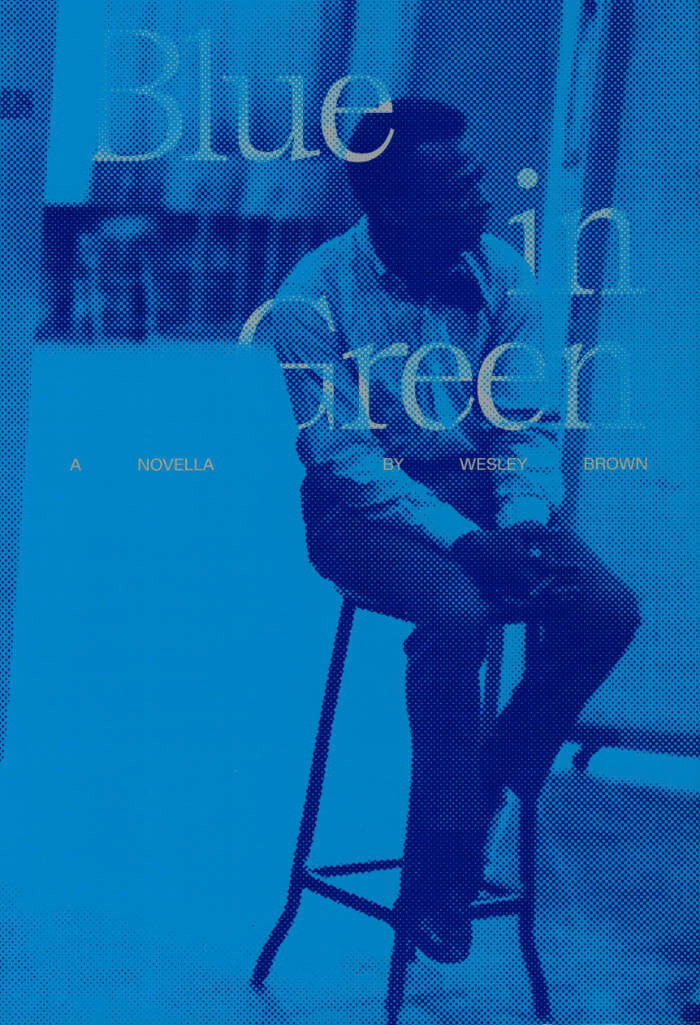
Blue in Green
Wesley Brown narrates the day when trumpeter Miles Davis was assaulted by the New York Police Department. A dramatic and humorous story, told from multiple perspectives including that of Frances Taylor, Davis's wife, and the musicians in Davis's bands: a timely meditation on the psychological impact of police brutality, through the lens of a day in the life of Miles Davis.
The latest work from the veteran novelist called "one hell of a writer" by James Baldwin and "wonderfully wry" by Donald Barthelme, Blue in Green narrates one evening in August 1959, when, mere weeks after the release of his landmark album Kind of Blue, Miles Davis is assaulted by a member of the New York City Police Department outside of Birdland. In the aftermath, we enter the strained relationship between Davis and the woman he will soon marry, Frances Taylor, whom he has recently pressured into ending her run as a performer on Broadway and retiring from modern dance and ballet altogether. Frances, who is increasingly subject to Davis's temper—fueled by both his professional envy and substance abuse— reckons with her disciplined upbringing, and, through a fateful meeting with Lena Horne, the conflicting demands of motherhood and artistic vocation. Meanwhile, blowing off steam from his beating, Miles speeds across Manhattan in his sports car. Racing alongside him are recollections of a stony, young John Coltrane, a combative Charlie Parker, and the stilted world of the Black middle class he's left behind.
"Wesley Brown is a writer's writer. His dialog in Blue in Green is remarkable. He knows the varieties of the American language in and out. We get fascinating portraits of Dizzy Gillespie, Thelonious Monk, Billie Holiday, Clark Terry, Lena Horne, Katherine Dunham, Eartha Kitt, and others. An insider named Freeloader provides comic relief. Before the salespersons dictated trends in Black literature, a major publisher would have published this book. Thanks to Blank Forms and other midsize presses, the Black literary tradition, whose fictional standards were set by Brooks, Wright, Himes, Polite, Bambara, and others, is alive." — Ishmael Reed

Pathetic Literature
A unique collection composed by the award-winning poet and writer, a global anthology of pieces from lesser-known classics by luminaries like Franz Kafka, Samuel R. Delany, and Gwendolyn Brooks to up-and-coming writers that examine pathos and feeling, giving a well-timed rehab to the word "pathetic"
"Literature is pathetic." So claims Eileen Myles in their bold and bracing introduction to Pathetic Literature, an exuberant collection of pieces ranging from poetry to theater to prose to something in between, all of which explore those so-called "pathetic" or sensitive feelings around which lives are built and revolutions are incited.
Myles first reclaimed the word for a seminar they taught at the University of California San Diego, rescuing it from the derision into which it had slipped and restoring its original meaning of inspiring emotion or feeling, from the Ancient Greek rhetorical method pathos. Their reinvention of "pathetic" formed the bedrock for this anthology, which includes a breathtaking 106 contributors, encompassing titans of global literature like Robert Walser, Jorge Luis Borges, Rumi, and Gwendolyn Brooks, queer icons and revolutionaries like Dodie Bellamy, Samuel R. Delany, and Bob Flanagan, as well as the invigorating newness and excitement of writers on the rise, including Nicole Wallace, Precious Okoyomon, and Will Farris. Creative nonfiction by Karla Cornejo Villavicencio, Jack Halberstam, and Porochista Khakpour rubs shoulders with poetry by Natalie Diaz, Victoria Chang, Lucille Clifton, and Ariana Reines, all joined by prose from Chester Himes, Djuna Barnes, Chris Kraus, and Qiu Miaojin, among so many others. The result is a matchless anthology that is as much an ongoing dialogue as an essential compendium of queer, revolutionary, joyful, and always moving literature.
From confrontations with suffering, embarrassment, and disquiet, to the comforts and consolations of finding one's familiar double in a poem, Pathetic Literature is a swarming taxonomy of ways to think differently and live pathetically on a polarized and fearful planet.

My Manservant and Me
My Manservant and Me is a story about the trials and tribulations of having a live-in valet. Written from the uneasy perspective of an aging, incontinent author of extremely successful middlebrow plays, we learn about his manservant, a young film actor who is easily moved to both delicate gestures and terrible tantrums; who's been authorized to handle his master's finances, who orders stock buys, dictates his master's wardrobe, sleeps in his master's bed, and yet won't let him watch variety television. My Manservant and Me reveals the rude specificities of this relationship with provocative humor and stylistic abjection. This manservant won't be going anywhere.
Hervé Guibert (1955-1991) was a French writer and photographer. A critic for Le Monde, he was the author of some thirty books, most notably To the Friend Who Did Not Save My Life, which presents an intimate portrait of Michel Foucault and played a significant role in changing public attitudes in France towards AIDS.

Amanda
The artist book Amanda is greatly inspired by “Tradeswomen” quarterly magazine for women in blue-collar work, published in the 1980’s and 1990’s in the United States. Amanda is similarly thought as a periodical dealing with the subjects of technology and industry from a feminist (not solely female) angle. The first issue contains fiction stories of an emancipatory character, citing trade associations, oil industry in Iran and ghosts of the printer feeders.
The publication is made in the framework of The Building Institute, an experimental organisation aiming to strengthen the position of femmes builders in the domain of technical construction work. Amanda brings together literary texts by Maria Toumazou, Samantha McCulloch, Sepideh Karami and Madeleine Morley, combining fiction stories with visual artwork.
Olga Micińska is a visual artist currently living in Amsterdam. Graduated from the MA Art Praxis program at the Dutch Art Institute and holds an MFA in Sculpture from the Academy of Fine Arts in Warsaw. Also trained as a woodworker, collaborates with craft studios of various domains. Recently she has initiated The Building Institute.
The Building Institute (TBI) is an experimental platform aiming to emancipate the undermined knowledges dwelling in the craft domains, and to unpack diverse questions related to technology and the means of production. TBI combines art’s speculative competences with the grounded practice of manual labor, manifesting its objectives through educational activities, exhibitions, and publications.
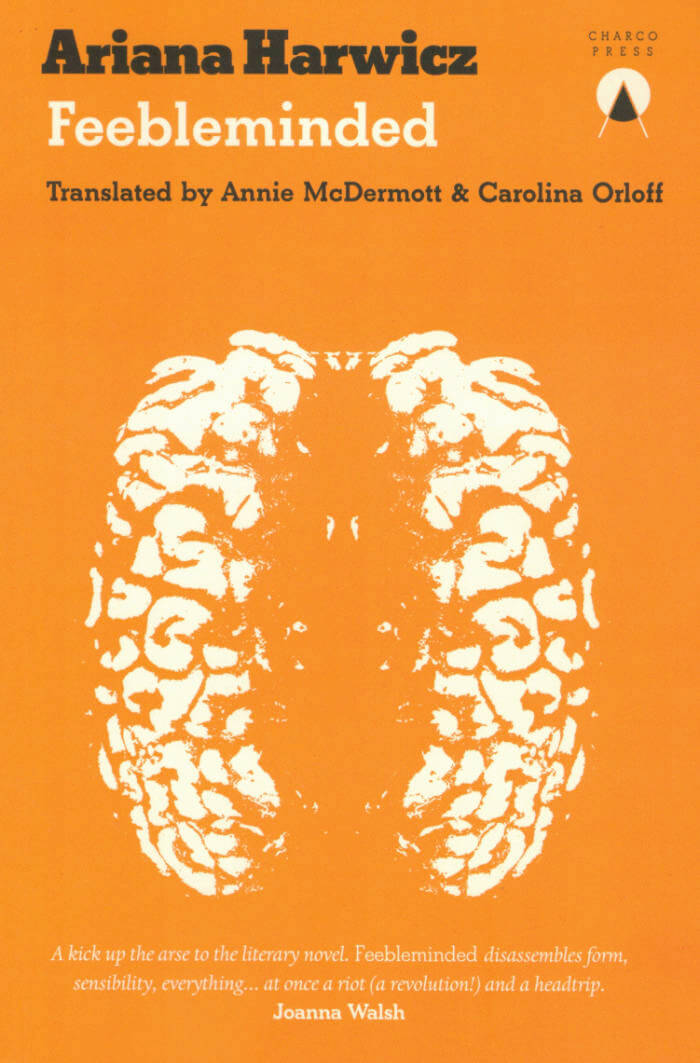
Feebleminded
The unraveling of a mother/daughter relationship that is at once chaotic, loving, and mercilessly destructive.
Following the international success of Die, My Love (longlisted for the Man Booker International Prize 2018), Ariana Harwicz again takes us into the darkest recesses of the imagination with this delirious, furious account of a mother and daughter bound by chaos as much as love. Driven to the edge by the men in their lives, they oscillate between erratic bursts of housework, lazing in the garden, and drunken escapades. But is the constant undercurrent of violence all in the daughter's mind or will they actually go through with their plan for revenge? With a shocking, edge-of-the-seat finale worthy of Thelma & Louise if it were remade by David Lynch, Feebleminded is a wild ride of a novel with echoes of Ágota Kristóf, Elfriede Jelinek and Alan Warner, and will leave you both shaken and begging for more.
Compared to Nathalie Sarraute and Virginia Woolf, Ariana Harwicz is one of the most radical figures in contemporary Argentinian literature. Her prose is characterised by its violence, eroticism, irony and criticism of the clichés surrounding the notions of the family and conventional relationships. Born in Buenos Aires in 1977, Harwicz studied screenwriting and drama in Argentina, and earned a degree in Performing Arts from the University of Paris VII as well as a Master's in comparative literature from the Sorbonne. She has taught screenwriting and written plays, which have been staged in Buenos Aires. Feebleminded (which has also been adapted for the stage in Argentina and Spain) is her second novel and a sequel in an 'involuntary' trilogy, preceded by Die, My Love (Charco Press, 2017) and followed by Precocious. Her fourth novel, Degenerate comes out in June 2019. Die, My Love was longlisted for the Man Booker International Prize (2018) and shortlisted for the Republic of Consciousness Prize (2018). It has been translated into more than ten languages.

Dead Girls
Not a police chronicle, not a thriller, but a contemporary noir novel of the ongoing catastrophe of femicide and the murder of three young women in interior of Argentina.
Femicide is generally defined as the murder of women simply because they are women. In 2018, 139 women died in the UK as a result of male violence (The Guardian). In Argentina this number is far higher, with 278 cases registered for that same year. Following the success of The Wind That Lays Waste, internationally acclaimed Argentinian author Selva Almada dives into the heart of this problem with this journalistic novel, comparable to Truman Capote’s In Cold Blood or John Hersey’s Hiroshima, in response to the urgent need for attention to a serious problem of our times.
Almada narrates the case of three small-town teenage girls murdered in the 1980’s; three unpunished deaths that occurred before the word ‘femicide’ was even coined. In this brutal but necessary novel, Almada brings to the fore these crimes committed in the interior of the country, while Argentina was celebrating the return of democracy. Three deaths without culprits: 19-year old Andrea Danne, stabbed in her own bed; 15-year old María Luisa Quevedo, raped, strangled, and dumped in wasteland; and 20-year old Sarita Mundín, whose disfigured body was found on a river bank. Selva Almada takes these and other tales of abused women to weave together a dry, straightforward portrait of gender violence that surpasses national borders and speaks to readers’ consciousness all over the world.
This is not a police chronicle, although there is an investigation. This is not a thriller, although there is mystery and suspense. The real noir element of Dead Girls lies in the heart of the women described here and of the men that have abused them. With her unique style of prose that captures the invisible, and with lyrical brutality, Almada manages to blaze new trails in this kind of journalistic fiction.
Compared to Carson McCullers, William Faulkner, Flannery O'Connor, Sara Gallardo and Juan Carlos Onetti, Selva Almada (Entre Ríos, Argentina, 1973) is considered one of the most powerful voices of contemporary Argentinian and Latin American literature and one of the most influential feminist intellectuals of the region. Including her debut _The Wind that Lays Waste, _she has published two novels, a book of short stories, a book of journalistic fiction and a kind of film diary (written in the set of Lucrecia Martel's most recent film Zama, based on Antonio di Benedetto's novel). She has been finalist of the Rodolfo Walsh Award and of the Tigre Juan Award (both in Spain). Her work has been translated into French, Italian, Portuguese, German, Dutch, Swedish and Turkish. This is her second book to appear in English after _The Wind that Lays Waste _(Winner of the EIBF First Book Award 2019).

Tender
The third and final installment of Ariana Harwicz's Involuntary Trilogy finds us on familiar, disquieting ground. Under the spell of a mother's madness, the French countryside transforms into a dreamscape of interconnected imagery: animals, desire, the functions of the body. Most troublingly: the comfort of a teenage son. Scorning the bourgeois mores and conventionality of their small town, she withdraws him from school and the two embark on ever more antisocial and dangerous behavior. Harwicz is at her best here, building an interior world so robust, and so grotesque, that it eclipses our shared reality. Savage, and savagely funny, she leaves us singed, if not scorched.
Compared to Nathalie Sarraute and Virginia Woolf, Ariana Harwicz is one of the most radical figures in contemporary Argentinian literature. Her prose is characterised by its violence, eroticism, irony and criticism of the clichés surrounding the notions of the family and conventional relationships. Born in Buenos Aires in 1977, Harwicz studied screenwriting and drama in Argentina, and earned a degree in Performing Arts from the University of Paris VII as well as a Master's in comparative literature from the Sorbonne. She has taught screenwriting and written plays, which have been staged in Buenos Aires. Feebleminded (which has also been adapted for the stage in Argentina and Spain) is her second novel and a sequel in an 'involuntary' trilogy, preceded by Die, My Love (Charco Press, 2017) and followed by Precocious. Her fourth novel, Degenerate comes out in June 2019. Die, My Love was longlisted for the Man Booker International Prize (2018) and shortlisted for the Republic of Consciousness Prize (2018). It has been translated into more than ten languages.
Translated by Carolina Orloff and Annie McDermott.
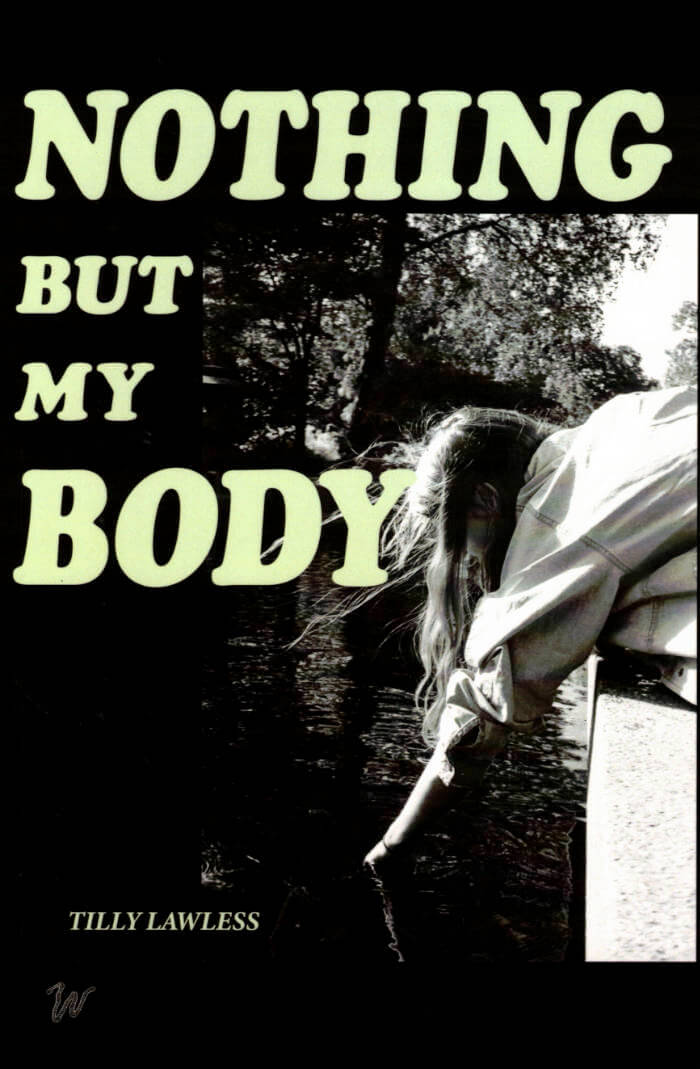
Nothing But My Body
Nothing But My Body is an eight-day journey through the mind of a young woman, a queer sex worker in Australia, as she navigates breakups and infatuation across just over a year.
The unnamed narrator’s voice is both fierce and vulnerable, defiant and tender, as she explores the interplay between her external and internal world, and the fluctuations of her emotions as love affairs intensify and wane. Her loneliness is assuaged by her beloved chosen family-her friends-and by the beauty of the natural world.
Set during the cataclysmic bushfire season of 2019 and into the coronavirus pandemic and lockdown, sex work is the constant backdrop of the story as it moves between Sydney, Berlin, Orange and Bellingen. The beauty of the writing and the moving and deeply engaging sense of compassion that threads through this remarkable novel give true meaning to the concepts of inclusivity and community in surprising and original ways.
This stunning, unflinching and lyrical debut is both a rejection of romantic love, a euphoric celebration of the queer community and a reckoning with the body as both abject and joyous.
...
Worms Publishing works across form and genre to bring experimental writers to the literary topsoil. Working outside of conventional publishing, Worms endeavours to support and cultivate underrepresented voices with a focus on female and non-binary authors and artists.
Nothing But My Body by Tilly Lawless is Worms’ first title. This fictionalised stream of consciousness, takes an unflinching look at sex work, queerness, class and mental health from the perspective of a Sydney-based sex worker over eight days.
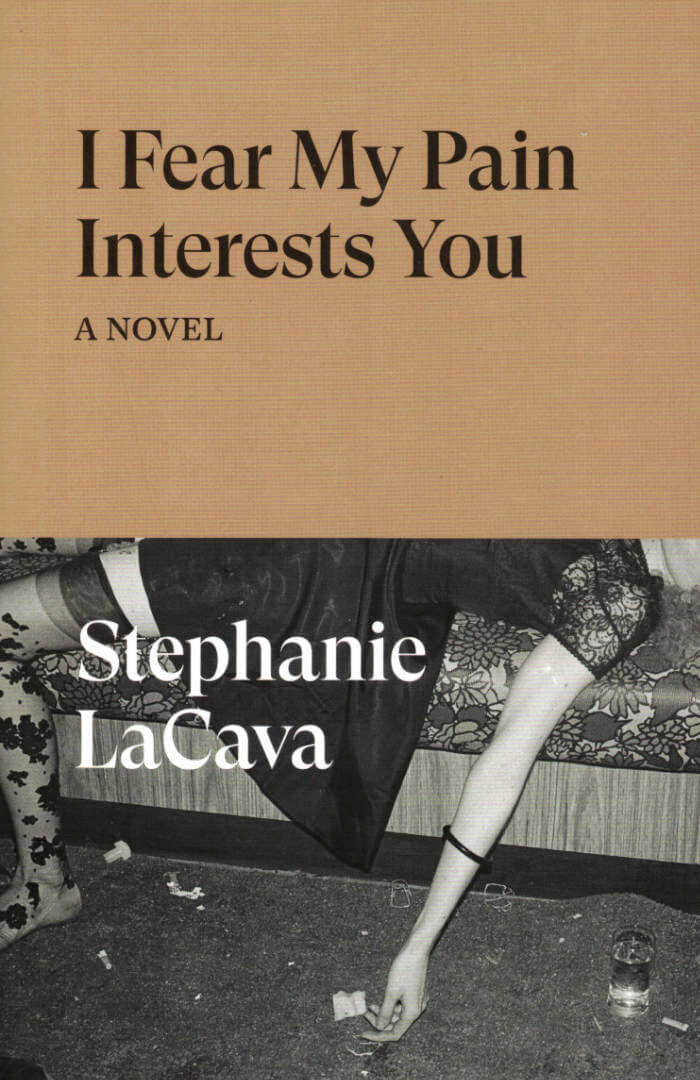
I Fear My Pain Interests You
A punky, raw novel of millenial disaffection, trauma and 1960s cinema.
Margot is the child of renowned musicians and the product of a particularly punky upbringing. Burnt-out from the burden of expectation and the bad end of the worst relationship yet, she leaves New York and heads to to the Pacific Northwest. She's seeking to escape both the eyes of the world and the echoing voice of that last bad man. But a chance encounter with a dubious doctor in a graveyard, and the discovery of a dozen old film reels, opens the door to a study of both the peculiarities of her body and the absurdities of her famous family.
A literary take on cinema du corps, Stephanie LaCava's new novel is an audaciously sexy and moving exploration of culture and connections, bodies and breakdowns.

Everything for Everyone: An Oral History of the New York Commune, 2052-2072
By the middle of the twenty-first century, war, famine, economic collapse, and climate catastrophe had toppled the world's governments. In the 2050s, the insurrections reached the nerve center of global capitalism—New York City. This book, a collection of interviews with the people who made the revolution, was published to mark the twentieth anniversary of the New York Commune, a radically new social order forged in the ashes of capitalist collapse.
Here is the insurrection in the words of the people who made it, a cast as diverse as the city itself. Nurses, sex workers, antifascist militants, and survivors of all stripes recall the collapse of life as they knew it and the emergence of a collective alternative. Their stories, delivered in deeply human fashion, together outline how ordinary people's efforts to survive in the face of crisis contain the seeds of a new world.

Dust
Cactus erotica. Dykes taking T erotica. Handmade rope erotica.
Tangentially alien erotica. Clit long like laffy taffy erotica. Death erotica.
In L.A. Warman's anti-sequel to her award-winning debut Whore Foods, two anonymous lovers traverse the vast and lonely desert which has blighted most of the continent. In their possession is the gift of the Vapors, a mystical substance which allows them to transcend death. Yet as they explore the desert realm and each other, they cannot help but wonder if their entwined destiny resides somewhere beyond transcendence.
LA Warman is a poet, performer, and teacher currently based in New York City. Warman is the author of Whore Foods, an erotic novella which recieved a Lambda Literary Award in 2020. She is the founder of Warman School, a non-accredited and body based learning center. The Warman School has taught over 500 students online and in person. She teaches topics such as erotics, death, depression, and god. Pitchfork named her piece ADMSDP one of the top 100 songs of 2020. She has had performance and installation work in shows at MOCA Cleveland, ICA Philadelphia, Time-Based Art Festival, Poetry Project, and Open Engagement. Warman has presented performative poetics research at Brown University, Hamilton College, Reed College, Hampshire College, and others. She is a founding organizer of the Free Ashley Now survivor defense campaign.
"This book is an instant waypoint on my return to the revelation: if nothing else, my tears have a place where they belong—mixed into the dust of others." — Wilmer Wilson IV
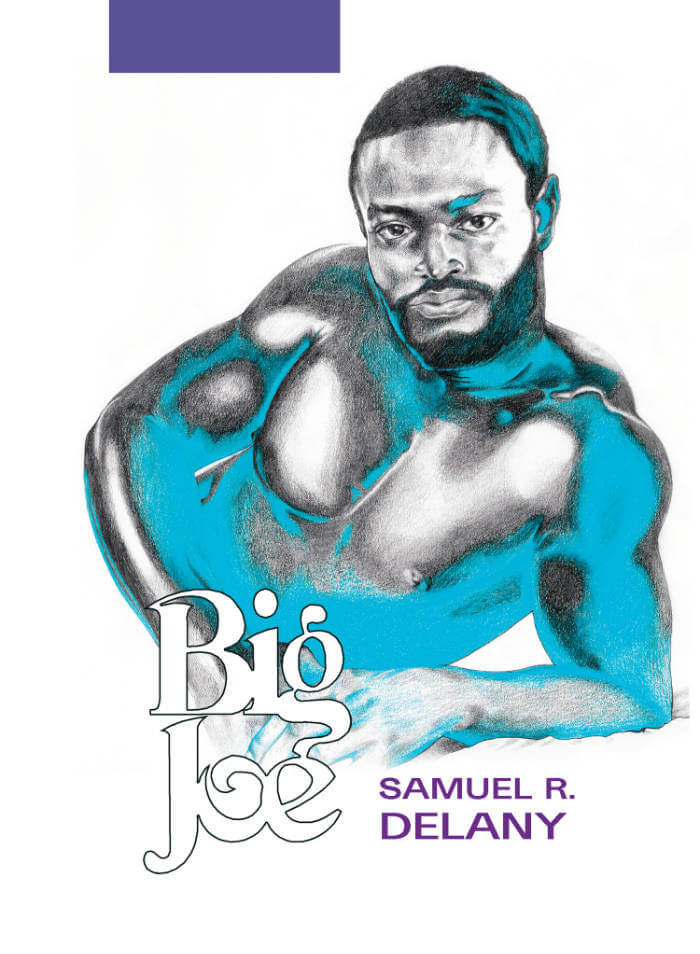
BIG JOE
A chance encounter with two older fellows at the movie theater has the young vagabond Ligie on his way to Lot-8, a trailer park down the road with an unconventional local reputation. There, Ligie meets Big Joe and his extended Lot-8-family: a tight-knit community of freaks all sectioned together by the landlord at the outskirts of town.
Weaving together colorful characters and outright carnal debauchery, BIG JOE is a radical pastoral of community, desire, and the strangeness of knowing one another.
Featuring color illustrations by Drake Carr and Sabrina Bockler.
Cover illustration by Drake Carr
Samuel R. Delany is the author of numerous books and novels, including the Nebula Award-winning Babel-17 and The Einstein Intersection, as well as Nova (now in a Library of America anthology) and Dhalgren. His 2007 novel Dark Reflections won the Stonewall Book Award. Other erotic novels include Equinox, Hogg, The Mad Man, Throu gh the Valley of the Nest of Spiders, and Shoat Rumblin. Delany was the subject of a 2007 documentary, The Polymath, by Fred Barney Taylor, and he has written a popular creative writing textbook, About Writing. He is the author of the widely taught Times Square Red/Times Square Blue and numerous books of essays; his book-length autobiographical essay, The Motion of Light in Water, won a Hugo Award in 1989. As e-books, paperbacks, or audiobooks, his works are available through his website at: www.samueldelany.com

Desiderata
Desiderata is a collection of Lizzy Mercier Descloux's poetry, photos, and diaristic fragments from her visit to New York City in the winter of 1977. Only eighteen at the time, Descloux fell into the orbits of the nascent No Wave scene festering in Lower Manhattan, where she befriended Richard Hell, Patti Smith, and ZE Records founder Michel Esteban. Desideratacharts the musician's early ambitions as a writer, revealing a potent poetic voice that careens from acid-tinged social observations to outright Dadaist semantic revelry, interspersed with collages and hand-written notes. Originally composed entirely in French, this is the first time these works have ever appeared in English and this edition includes the original French facsimile bound tête-bêche with the new English translation.
Martine-Elisabeth "Lizzy" Mercier Descloux (16 December 1956 – 20 April 2004) was a French musician, singer-songwriter, composer, actress, writer and painter. She collaborated with a wide range of musicians including Wally Badarou and Chet Baker.
Emma Ramadan was initiated into the mystery of Bastet at the age of thirteen and rose to the station of High Scioness. After leaving the temple she hopped freight across the Maghreb, where she began translating esoterica carved into the boxcar walls. She has independently discovered numerous uncatalogued cave systems and varietals of nightshade tea. Her name appears on the underside of stones and in various magazines whose pages seem to turn on their own.
Translated by Emma Ramadan.
Bilingual edition: FR/ENG
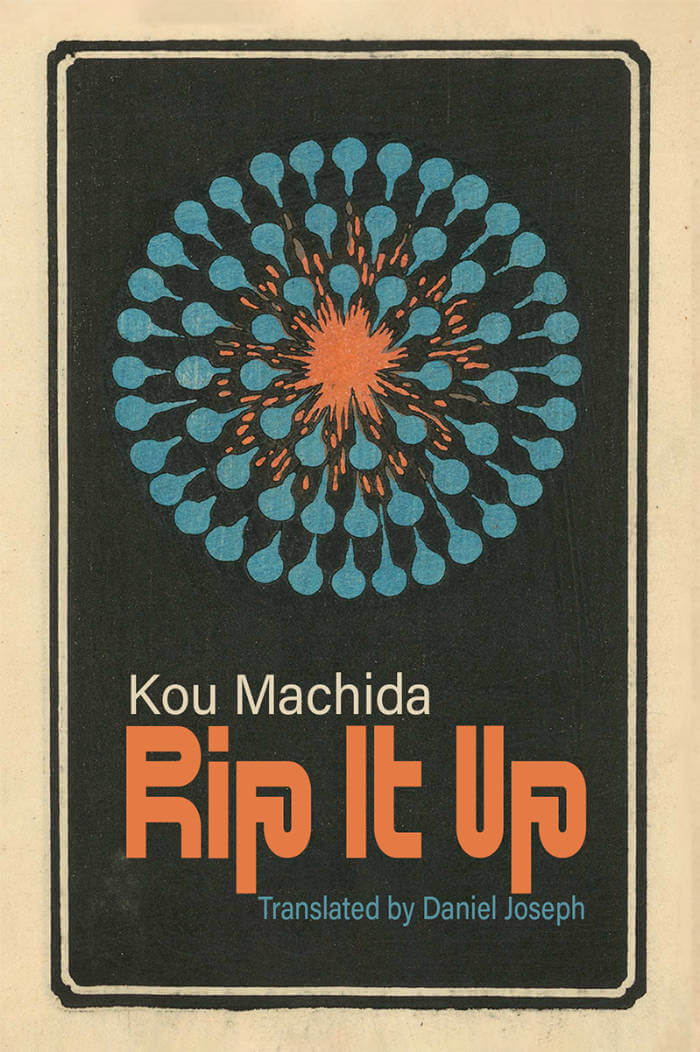
Rip It Up
Rip It Up is the first ever English translation of Kou Machida's award-winning novel, an undertaking over five years in the making and the inaugural title of Inpatient Press's new translation imprint Mercurial Editions.
Set in a kaleidoscopic hyperreal Japan circa Y2K, Rip It Up catalogues the misdeeds and misgivings of a down-and-out wannabe debonair who ekes out a meager living at the fringes of the art world, wracked by jealousy at his friend's success and despondency of his own creative (and moral) bankruptcy. In turn hilarious and also horrifying, Machida's pyrotechnic prose plumbs the discursive depths of the creative spirit, a head-spinning survey of degeneration and self-sabotage.
Kou Machida is a punk singer, actor, and author, who turned to poetry and fiction after releasing one of the seminal Japanese punk albums with his band INU, 1981’s Meshi kuuna! (Fuck Eating!). He has won the Akutagawa and Tanizaki prizes among many others, and his 2005 novel Kokuhaku (Confession) was named one of the three best books of the last thirty years by the Asahi Newspaper.
Daniel Joseph is a translator, editor, and musician who spent his salad days shouting in dank basements before getting a master’s degree in medieval Japanese literature. Recent translation projects include contributions to Terminal Boredom (Verso, 2021), a collection of stories by science fiction pioneer Izumi Suzuki; and the memoir Try Saying You’re Alive! (Blank Forms, 2021) by outsider folk maniac Kazuki Tomokawa.
Winner of the 2000 Akutagawa Prize for Fiction
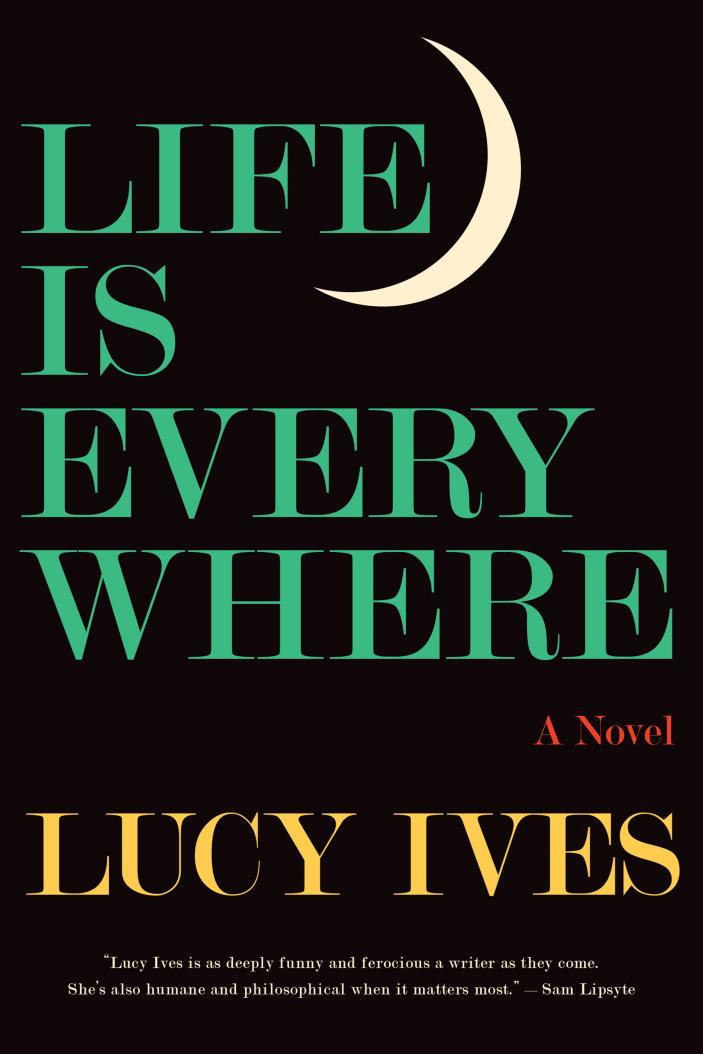
Life Is Everywhere
Everything that happened was repetition. But it was repetition with a difference. So she dragged along in a spiral, trusting to this form.
Manhattan, 2014. It’s an unseasonably warm Thursday in November and Erin Adamo is locked out of her apartment. Her husband has just left her and meanwhile her keys are in her coat, which she abandoned at her parents’ apartment when she exited mid-dinner after her father—once again—lost control.
Erin takes refuge in the library of the university where she is a grad student. Her bag contains two manuscripts she’s written, along with a monograph by a faculty member who’s recently become embroiled in a bizarre scandal. Erin isn’t sure what she’s doing, but a small, mostly unconscious part of her knows: within these documents is a key she’s needed all along.
With unflinching precision, Life Is Everywhere captures emotional events that hover fitfully at the borders of visibility and intelligibility, showing how the past lives on, often secretly and at the expense of the present. It’s about one person on one evening, reckoning with heartbreak—a story that, to be fully told, unexpectedly requires many others, from the history of botulism to an enigmatic surrealist prank. Multifarious, mischievous, and deeply humane, Lucy Ives’s latest masterpiece rejoices in what a novel, and a self, can carry.
[note from the publisher]